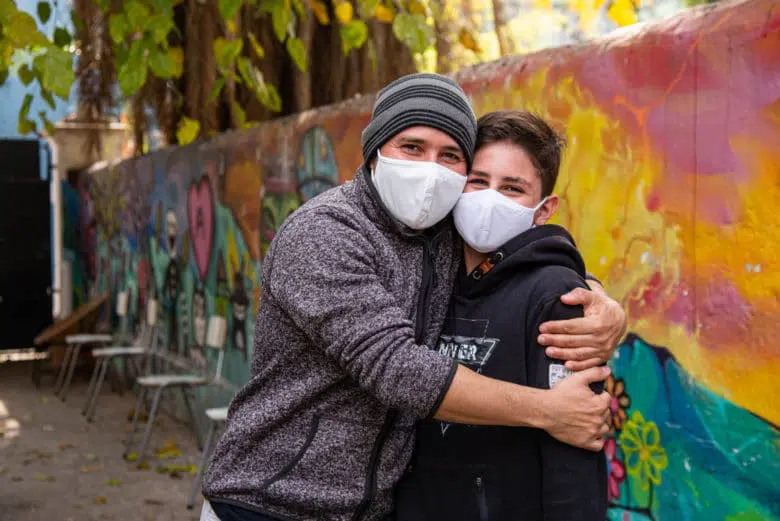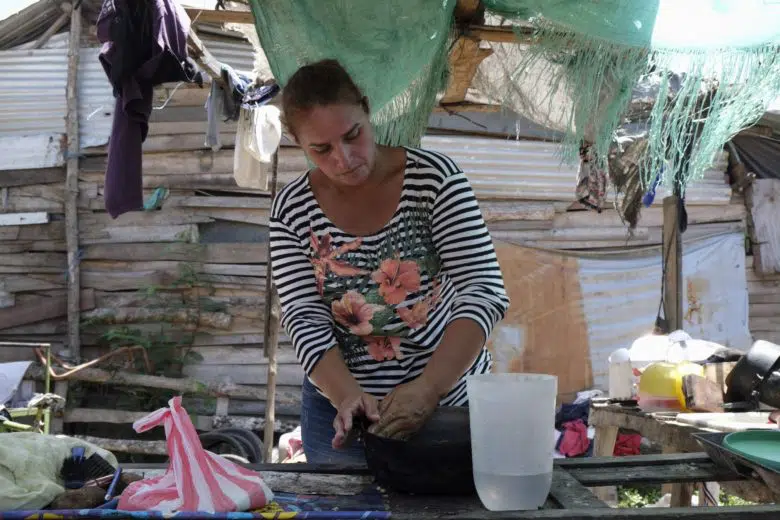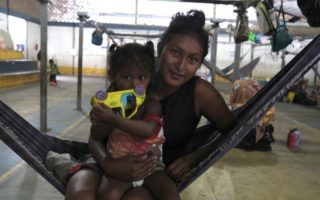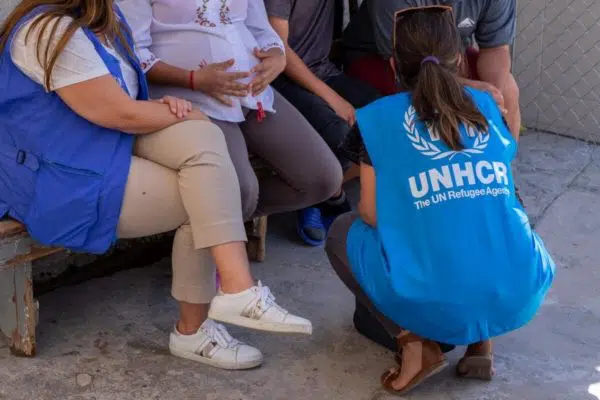
Venezuelan Angel González and his son Angel Santiago Gonzalez. © UNHCR/Eugenia Paz
The mass exodus of more than five million Venezuelans continues to be one of the largest displacement crises in the world—and the biggest in Latin America’s recent history.
Violence, insecurity, shortages of food and medicine, and access to essential services have compelled refugees and migrants to leave in recent years, with the vast majority finding refuge in countries within Latin America and the Caribbean. COVID-19 has presented a host of fresh challenges. Many have lost all sources of income, exposing them to destitution, homelessness, exploitation and abuse.
As a result, 2021 saw UNHCR follow a two-track approach to supporting Venezuelan refugees and migrants: providing basic needs support mainly in the form of cash assistance; and promotion of inclusion of refugees and migrants within national systems, starting with COVID-19 vaccination plans and the labour market.
Recently, Ecuador announced a plan to extend regular status to the nearly 50 per cent of the 430,000 Venezuelan refugees and migrants in the country who currently do not have it. The plan will not only remove practical barriers to access basic services like health care and education, which are already granted regardless of status, it will also remove barriers to entrepreneurship and provide a doorway to full inclusion. In neighbouring Colombia, a similar process will give Temporary Protected Status (TPS) to many of the 1.7 million Venezuelans in the country.

©UNHCR/Santiago Escobar-Jaramillo
Yohana, a mother of five, arrived in the Colombian city of Barranquilla with her family nearly five years ago. Temporary Protected Status means her children who have been out of school since leaving Venezuela will be able to get the education they need to make better futures for themselves. Yohana is hopeful for relief from the chronic pain she has been experiencing. She suffers from ovarian cysts that require a surgery which, without proper documentation, she has not been able to get. Unable to legally work, she has been making ends meet by sifting through trash for recyclables that she sells.
“Regularizing our stay in Colombia is very important because we can hardly access anything without it… medical attention, education, employment.”





